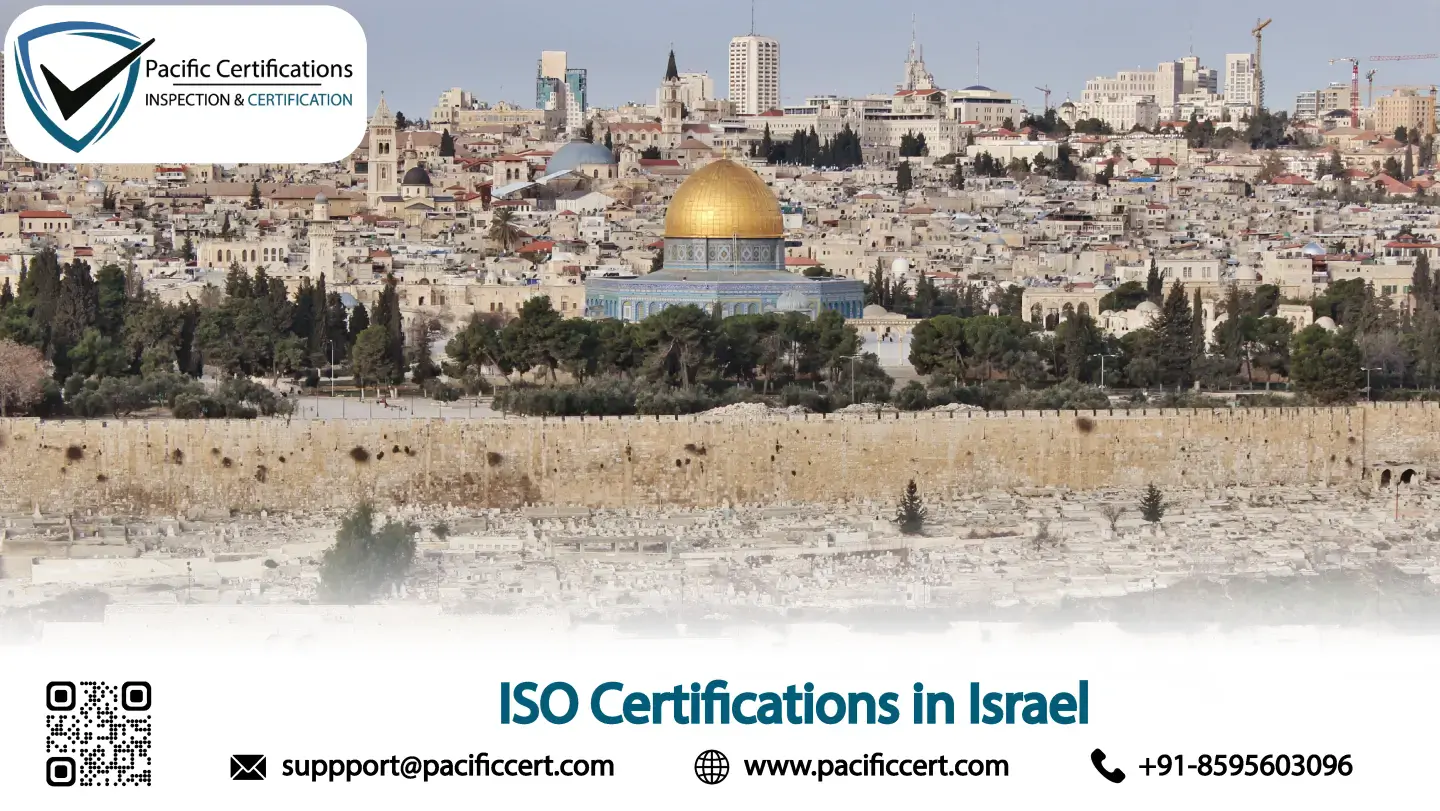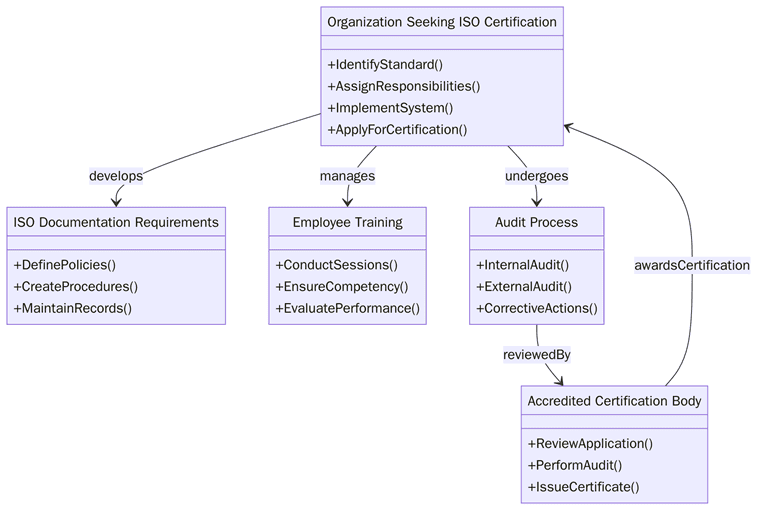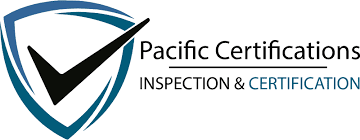ISO Certifications in Israel, Popular Standards, Requirements and Benefits

Introduction
Israel’s economy spans semiconductors and electronics, defence and advanced manufacturing, pharmaceuticals and med-tech, agrifood and beverages, construction and infrastructure, logistics through Haifa/Ashdod/Eilat, healthcare and laboratories and a powerful digital ecosystem (SaaS/cloud, fintech, cyber) centred in Tel Aviv, Jerusalem and Haifa. By adopting standards such as ISO 9001 (Quality Management), ISO 14001 (Environmental Management) and ISO 45001 (Occupational Health & Safety), companies in Israel can improve efficiency, reduce waste and earn trust from partners and regulators. For expanding areas like ICT, construction and advanced manufacturing, ISO certification has become a practical step toward attracting international clients and competing confidently in global markets. These programs provide verifiable assurance on quality, safety, environment, information security and continuity that buyers and lenders accept across Europe, North America and Asia.
Contact Pacific Certifications to initiate ISO certification in Israel, receive a documented scope and Stage 1/Stage 2 audit schedule under recognized accreditation.
Economic Context & Industry Overview
Israel remains one of the world’s most innovation-intensive economies. Precision industries (chips, electronics, optics, batteries) and chemicals anchor exports; construction and transport corridors keep infrastructure busy; agro-tech, water and waste systems are globally competitive; and cloud, fintech and cybersecurity firms shape the services balance. Across these sectors, procurement teams and regulators increasingly expect auditable management systems as a baseline for vendor approval, tenders and due diligence.
Why ISO certification matters in Israel?
Tier-one buyers and public authorities request evidence-based systems with clear records. ISO standards give a shared assurance language that shortens vendor approval, stabilizes yield on precision lines, improves site safety and environmental performance, protects data and uptime for digital platforms and demonstrates HACCP-based traceability for food brands. Certification also organizes the evidence, policies, KPIs, competence, risk files and corrective actions so review by customers, regulators and lenders move faster and with fewer surprises.
Popular ISO Standards in Israel
Certification Process in Israel
Preparation starts with an honest view of how work runs today and how evidence is captured. The aim is to make your system auditable without reinventing daily routines. Below are the steps to consider:
List products services sites headcount and high-risk processes for clear scope
Map processes end to end to show handoffs records and responsibilities
Set policy and measurable objectives linked to customer and legal needs
Assemble evidence packs for production maintenance labs IT and logistics
Train process owners keep competence matrices and attendance records current
Calibrate instruments verify methods and file certificates for quick checks
Run internal audits that sample high-risk tasks and supplier interfaces
Hold management review with KPIs audit results complaints legal updates and actions
Schedule Stage 1 for readiness and Stage 2 for implementation verification align multi-site sampling to risk
Blend on-site checks with remote interviews where suitable to reduce travel time
Keep permits licenses and regulatory reports organized for quick verification
What are the requirements of ISO Certifications in Israel?
Build the system around how work actually runs on lines, sites, clinics, warehouses and data rooms and align with Israeli norms so evidence stands up in audits, inspections and buyer reviews; below are the key requirements:

Scope that matches products/services, processes and sites (single or multi-site).
Documented system with controlled procedures and records that match practice.
Risk assessment with controls reflecting real hazards (HACCP, site safety, environmental aspects, privacy/security, energy) and change management.
Competence matrices and training records for process owners and high-risk roles.
Internal audits with reports, nonconformities, root-cause actions and verified closures.
Management review with inputs (KPIs, audits, incidents/complaints, legal updates) and tracked decisions.
Standard-specific artefacts: HACCP & CCP logs (ISO 22000), Statement of Applicability & risk files (ISO/IEC 27001), HIRA & PTW (ISO 45001), aspect-impact registers & objectives (ISO 14001), energy review & EnPIs (ISO 50001).
Legal/other requirements register with permits, inspections, calibrations, monitoring data and supplier compliance evidence.
Tip:Map controls to environmental permitting/monitoring, occupational safety obligations, Privacy Protection Law (PPL) and guidance from the Israel Privacy Protection Authority and sector expectations.
What are the benefits of ISO Certifications in Israel?
Use certification to win vendor status with global OEMs, pass retailer and regulator checks and stabilize operations across shifts and sites; below are the key benefits:

Faster prequalification in buyer portals and public procurement
Fewer incidents, defects and unplanned stoppages on lines and sites
Clear roles and competence paths for critical operations and maintenance
Traceable data for warranty, claims, ESG and due diligence
Better supplier control through audits, KPIs and corrective actions
Measured gains in energy use, waste, emissions, uptime and yield
Stronger brand signals in EU, US and APAC markets
Market Trends
Looking to 2027–2030, two forces are set to pull ISO adoption in Israel. Cyber resilience & digital services: Israel’s updated national cyber strategy emphasizes resilient critical infrastructure, secure digital identity and a whole-of-economy defence posture, conditions that will keep fintech, cloud and public platforms leaning on ISO/IEC 27001 (security), ISO 22301 (continuity) and ISO/IEC 20000-1 (service quality) as SLAs and incident obligations harden. (source: gov.il) Energy transition & efficiency: Government targets call for 30% renewable electricity by 2030, with solar as the primary lever. As utilities and large users add capacity and storage, expect broader adoption of ISO 50001 for energy performance alongside ISO 14001/45001 for EHS assurance in modernized plants and facilities. (source: Reuters)
Challenges Faced in Israel
Operational, regulatory and evidence-readiness issues related to getting certified can cause delays, budget constraints and staffing gaps, incomplete or outdated documentation and records, weak internal audits and corrective actions, supplier-control gaps, multi-site sampling and travel logistics, calibration and permit backlogs and data/privacy mapping for ICT; below are the key challenges:
Budgeting for certification time and ongoing system maintenance
Perception of ISO as “compliance” rather than a performance tool in some teams
Shortage of seasoned internal auditors and process owners outside the main hubs
Stalling on document control, internal audits and corrective-action discipline
Multi-site and supplier sampling (tiered electronics/food chains) complicating logistics and evidence quality
What is the cost of certification in Israel?
Certification budgets are confirmed after scoping and reflect headcount and risk, the number and spread of sites (e.g., Tel Aviv District, Haifa, South), your standards set (single vs. integrated such as 9001+14001+45001), sector sampling depth (precision lines and labs vs. offices) and travel/logistics. Your proposal itemizes Stage 1, Stage 2 and surveillance days, clarifies on-site versus remote activities and highlights any multi-site efficiencies so budgets remain transparent and predictable.
For personalised quote, contact [email protected].
What is the timeline for certification in Israel?
Timelines depend on document/record readiness, the speed of closing any Stage-1 findings, whether you are single- or multi-site and whether the program is single-standard or integrated. Coordinating audit windows around maintenance shutdowns, production ramps, release cycles and auditor travel also affects duration. A well-prepared single site can progress from application to decision within one audit cycle; multi-site or integrated programs typically require additional planning and sampling time.
How Pacific Certifications can help?
Pacific Certifications audits and certifies ISO management systems for semiconductors and electronics, automotive and machinery, chemicals and materials, logistics and ports, healthcare and SaaS/cloud across Israel. We work under recognized accreditation with transparent pricing and an experienced local team that understands site realities and buyer expectations. Our certificates are accepted by procurement portals and international customers and we are recognized by ABIS.
Request your ISO audit plan and fee estimate. We will help you map Stage 1 and Stage 2 timelines and evidence requirements for your organization. Contact us at [email protected] or visit www.pacificcert.com.
Accredited Training Programs
Pacific Certifications provides accredited training programs in Israel for ISO 9001, ISO 14001, ISO 45001, ISO 22000/FSSC 22000, ISO/IEC 27001, ISO 22301 and ISO/IEC 20000-1.
· Lead Auditor Training: for professionals auditing these systems across Israeli industries.
· Lead Implementer Training: for personnel establishing or improving systems in plants, sites, cold chains, hospitals, utilities and ICT platforms.
These programs are conducted online or onsite, depending on client needs under ISO/IEC 17024 for personnel certification.
To begin the process or request a quotation, contact us at [email protected] or visit www.pacificcert.com.
Our team will guide you through the audit and certification process and planning stages specific to your operations in Israel.
Ready to get ISO certified?
Contact Pacific Certifications to begin your certification journey today!
Suggested Certifications –
Read more: Pacific Blogs

